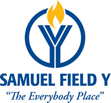|
Home
Calendar
Media
Officers
Members
Resources
|
 |
|||||
N.E. JEWISH COMMUNITY COUNCIL URGES The Northeast Queens Jewish Community Council [NEQJCC] supports tax equity for owner-occupied housing and no increases in property taxes for owner-occupied houses, announced President Corey B. Bearak. In a statement recently submitted to the New York City Real Property Tax Reform Commission, which was formed in response to complaints by cooperative shareowners about the City real estate tax system's treatment of cooperative housing units, the NEQJCC President Bearak called on the commission to adopt recommendations which recognize the traditional preference for owner-occupied housing units. On behalf of the NEQJCC, Bearak proposed a homestead exemption for owner-occupied housing. An attorney with experience in state and city government who has written on real estate tax and assessment issues, Bearak finds an increase in the City's Commuter tax on non-residents, to the extent necessary, to fund any program to extend the preference for private homes to owner-occupied cooperative units. NEQJCC President Bearak's statement follows: Thank you for inviting recommendations on real property tax reform. The Northeast Queens Jewish Community Council, an association of community, educational, fraternal, and religious organizations, covers middle class communities which form the City's backbone: Bayside, Bay Terrace, Bellerose, Douglaston, Floral Park, Glen Oaks, Hollis Hills, Little Neck, New Hyde Park, Oakland Gardens and Queens Village. The Council's major projects include neighborhood development, fostering intergroup understanding and building coalitions with other ethnic and religious groups. Residents in northeast Queens live in one, two and three family homes, cooperatives, condominiums and apartment houses, both garden-style and high-rise. The Council has worked since its inception to maintain Northeast Queens as an attractive place to live and raise a family. Northeast Queens' public elementary, middle and high schools and parochial schools - including a yeshiva, natural parks [without deer tics], health care, and shopping serve as magnets to prospective residents who seek a suburban quality of life within the City's limits. Changes in the City's property tax system which result in higher property taxes for many northeast Queens residents - for example, Class One homeowners - would cause many residents and prospective residents to choose to establish roots in locations outside the City of New York. The commission owes to New York City a responsibility to avert any property tax increase which would encourage its middle class - including Asians, African-Americans and Hispanics, to leave. A real estate tax increase on owner-occupied housing would result in two New York Cities: the wealthy and the impoverished. A sensible solution exists: Treat owner-occupied housing units alike for real estate taxation purposes and create a homestead exemption to ensure that the City's middle class and those less well to do can afford to remain. Existing programs recognize the stability that long-term residents contribute to our neighborhoods. The City's real estate tax exemption and rent increase exemption programs for our seniors offer compelling precedents to institutionalize the City's current treatment of Class One properties for owner-occupied housing units, with limited exceptions. The NEQJCC supports tax equity for owner occupied housing by decreasing taxes for owner-occupied coops to the level now borne by Class One housing. To fund this program, the NEQJCC recommends the City improve its operational efficiency and, to the extent necessary, the State Legislature authorize an increase in the City's non-resident income tax, commonly called the commuter tax. |


